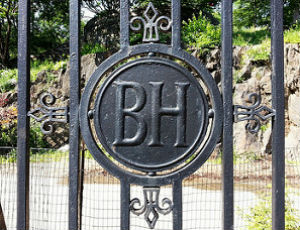David Oshinsky has written a lucid history of the storied Bellevue Hospital, naturally titled Bellevue. It also deals with the history of medicine and New York City, which Bellevue is intrinsically part of. From its days as the infirmary of a poorhouse to Hurricane Sandy (the only time in Bellevue's history that it closed its doors), Bellevue has been dedicated to the idea that healthcare is a right, regardless of ability to pay. If you've already read Oshinsky's book and are curious for more, or just have an interest in science and society, these books might be good reads.
The Ghost Map by Steven Johnson is a page-turner about how good science and public health policy can make a difference. Like NYC, London grew rapidly in the nineteenth century. This led to fast-spreading epidemics like cholera. Dr. John Snow traced a London cholera epidemic to a handle on a water pump and changed history by suggesting that germs in the water were causing the sickness. In Oshinsky's book, there is an epic battle between the old guard who wouldn't wash their hands, and the young turks who believed in sterilization of the medical space.
Candice Millard's Destiny of the Republic covers the assassination of president James Garfield. How is this important to medicine? Well, as Millard points out, it wasn't the bullet that killed Garfield. That, today, would have been completely survivable. However, the bullet was removed by the very dirty fingers of one of the most revered doctors in the nation, leading to a fatal blood infection. To this day, there are allegations of medical malpractice, even by the standards of the time.
For Bones and CSI fans, there's The Poisoner's Handbook by Deborah Blum. Blum follows the first trained medical examiner, Dr. Charles Norris, and New York's first toxicologist, Dr. Alexander Gettler, both operating out of Bellevue in the early twentieth century. Together, they were responsible for codifying the manner of death from chemistry. The award-winning Blum makes the science accessible to all and keeps the pages flipping by.
Randy Shilts was the first reporter assigned exclusively to the AIDS epidemic, and he wrote the modern classic And the Band Played on. Bellevue was on the cutting edge of the disease, noting that men were coming in with a rare form of pneumonia and other diseases that one's immune system can usually take care of. It took a while for Bellevue to talk to hospitals in San Francisco about their findings, and the public and political apathy led to underfunding of research and the explosion of HIV. Shilts wrote an impassioned history of the early days of the crisis, which deserves to be read.
Five Days at Memorial by Sheri Fink tells the compelling story of a New Orleans hospital during Hurricane Katrina. Memorial Medical Center was caught completely off guard by the storm, and soon medical staff were making desperate choices, including suspiciously high morphine levels in some critically ill patients who died. Bellevue paid attention to the lessons to be learned, but perhaps not enough, as they did have to evacuate all patients during Superstorm Sandy and divert new admissions to other hospitals. That said, it was an orderly retreat, not a rout, and no patient was lost.
Julie Holland writes a fine memoir about her time at the storied hospital in Weekends at Bellevue. A psychiatrist, Holland talks about diagnosing everyone who comes through her door, often brought in by the NYPD. If a shoplifter has Prozac in her purse or if someone is barking at tourists in Times Square, Holland sees them and makes a recommendation as to their treatment. Holland also talks about her personal life and how it relates to her work. From this book, we get a feeling for Bellevue's ethos of treating everyone, no matter their circumstances, even if this treatment is only a drop in the societal bucket.
Eric Mannheimer is the former medical director of Bellevue and writes of his experiences in Twelve Patients. Each of the people profiled here teach Mannheimer something important, whether about the broken prison and foster systems, grit, or forgiveness. Mannheimer includes himself as one of the subjects as he battles the same cancer as one of his patients, and discovers more about hope and despair than most doctors will ever comprehend. Sometimes joyful, sometimes despondent, this is a fascinating look through a medical lens at society and its castoffs.



Add a comment to: Your Bellevue Reading List